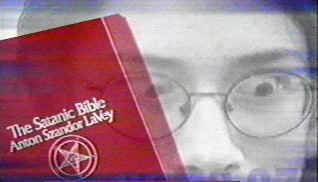by Bryce Pettit, Centers For Apologetics Research
The most universally recognizable symbol of Christianity is the cross of Jesus Christ. For believers it represents the love of God, a love that would not even spare heaven's most precious treasure. For most of those outside the faith it represents an absurdity, and for the Jews, a blasphemy. No other doctrine of Christianity divides believers from unbelievers like the cross of Christ.
There is a story that well illustrates this point, albeit with humor. A woman bought a set of audio cassettes for her young son. dramatizing the life of Christ. He was fascinated by the person of Jesus, his life, his miracles, and so on. But when the tape started to describe Jesus' crucifixion, the boy became very upset. He crossed his arms, stuck out his lower lip, and pouted. His mother happened to walk into the room at this time and noticed how upset her son was. She asked him what was wrong and he said, "I don't like what they did to Jesus, nailing him to that cross." His mother explained to him that by dying on the cross Jesus could forgive all of


